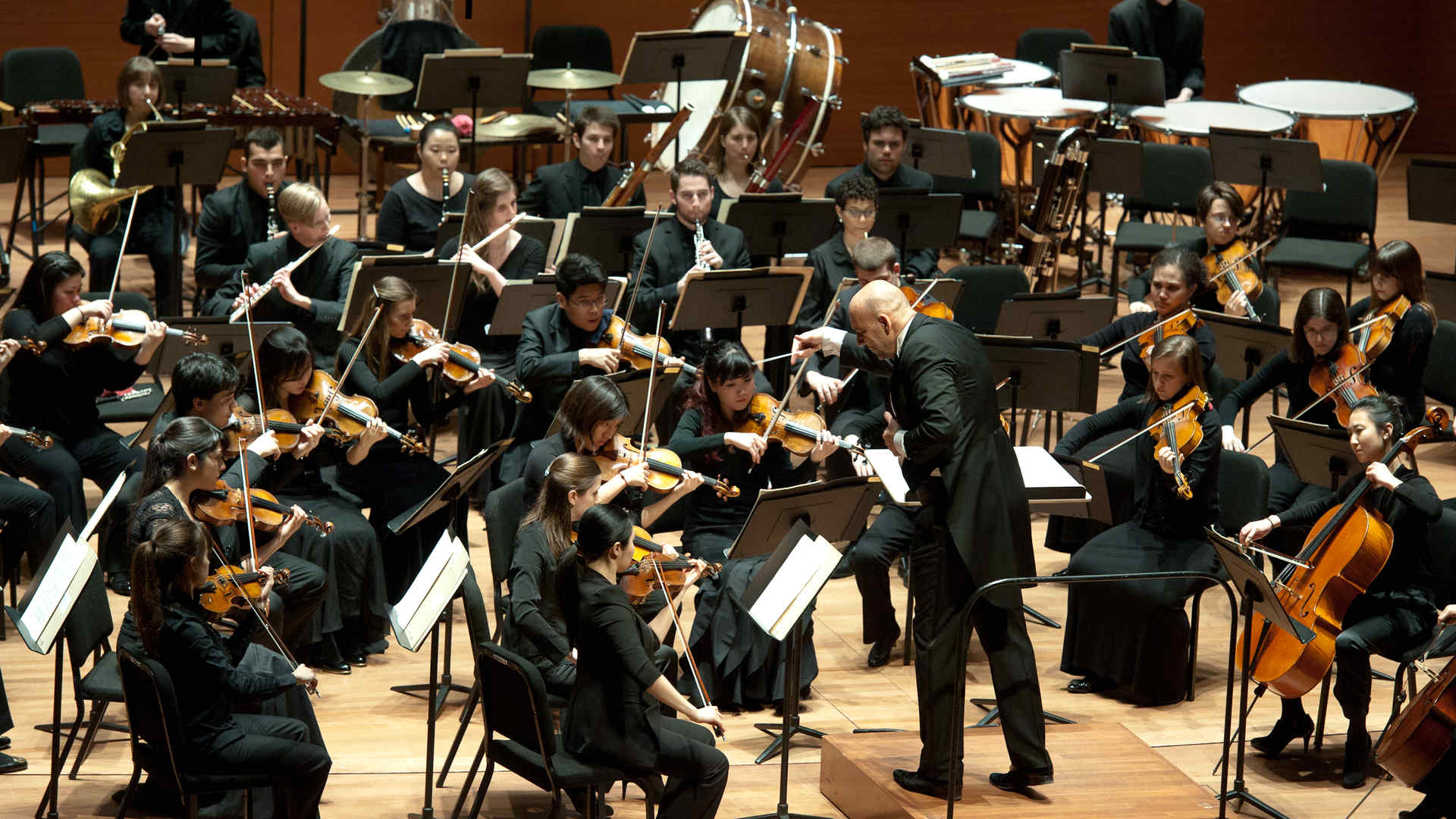
Ravel L’enfant et les sortilèges "speaks about the reality of our fears of the immense tenderness and cruelty within us."
The December 4 Juilliard Orchestra program features influential and beloved musical gems by Ravel and Debussy. It will be led by conductor Emmanuel Villaume, who gave a brief interview about this program prior to conducting Saint-Saëns’ Samson and Delilah at the Dallas Opera, where he’s in his fifth season as music director. (He’s also the music director of the PKF-Prague Philharmonia.)
The program includes one of the most popularly known works in the repertoire, Debussy’s La mer, as well as Ravel’s Menuet antique and his enchanting second opera, L’enfant et les sortilèges: Fantaisie lyrique en deux parties (The Child and the Spells: A Lyric Fantasy in Two Parts) (1920–25), which can be challenging to stage because of the difficulty in scale in terms of casting and staging design. The opera is a story of a rude young boy who has a tantrum and is destructive to his surroundings and material possessions. These items come to life, becoming characters that condemn the child for his behavior until he shows compassion to a squirrel injured in the chaos. The original librettist for this magical narrative, the renowned French novelist Colette, was approached by multiple composers to write the music, but she eventually chose Ravel, who she believed would elevate her text to magnificence because of his fantastic music.
“We wanted to do a program with the Vocal Arts students and I also wanted to work in detail with the orchestra, but we didn’t have time for both a full orchestra and an opera production,” Villaume said of the planning process. “So, the Ravel L’enfant et les sortilèges was an obvious choice because it has a huge cast of singers and it works very well in concert— it doesn’t necessarily need staging. It’s also a piece that’s very dear to me; it’s sometimes totally silly and nonsensical, but it speaks about the reality of our fears of the immense tenderness and cruelty within us. La mer is a great contrast; there are no words but there are so many images that are very strong and it’s a marvel of orchestration.”
"There is danger and risk in a live concert but also an incredible magic and many human rewards,” Villaume said.
Villaume made his Juilliard Orchestra conducting debut in 2008 and has returned numerous times since then, so some of the musicians have already worked with him. First-year master’s oboist Mitchell Kuhn (BM ’17), who will play the principal part in La mer, said of Villaume: “he’s an exciting conductor, he’s patient, and he always brings a touch of humor to his approach and beauty, humanity, and fun” to the music.
Villaume described working with Juilliard and its students as “rejuvenating—it gives me a perspective on pieces I love that is always fresh and new, especially because most of the students are discovering these pieces for the first time,” he said. Second principal violinist Brian Hong, a master’s student who had played La mer in youth orchestra, said he was particularly looking forward to the Ravel opera as he hadn’t known it at all beforehand.
It’s not just the experience of performing new repertoire that’s important, of course. Villaume noted that living in a time of “so much digital presence, where the lines between reality and fantasy are blurred” has, in a way, “threatened our field. You can find any piece or recording and have it for yourself in your room, but on the other hand, this experience with the Juilliard Orchestra is a reminder for all of us of what is truly exceptional and unique in a live concert with performers and an audience. There is danger and risk in a live concert but also an incredible magic and many human rewards,” he said.
Moreover, Villaume added, “communicating with an artistic genius who is no longer with us, like Ravel or Debussy, is quite exceptional and a privilege. It’s also fun and gives sense to our lives. It certainly helps me re-center and refocus on what is important in the work we’re doing with the orchestra.”
Artist Diploma candidate Max Tan (Pre-College ’11; MM ’17, violin) holds a Celia Ascher Fellowship